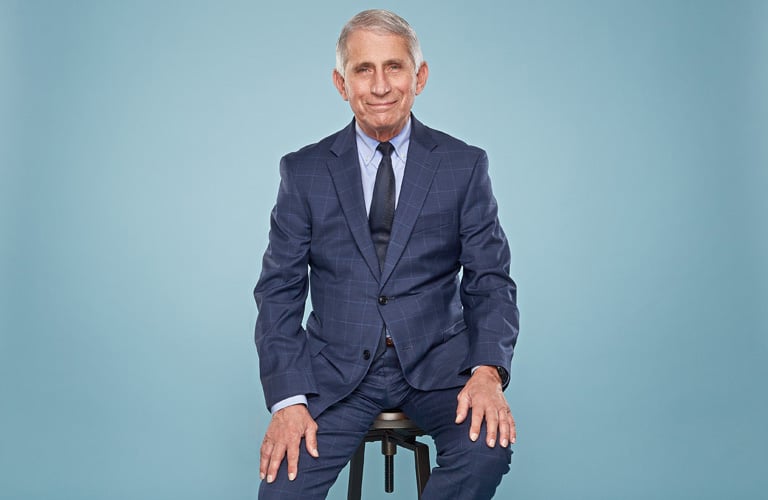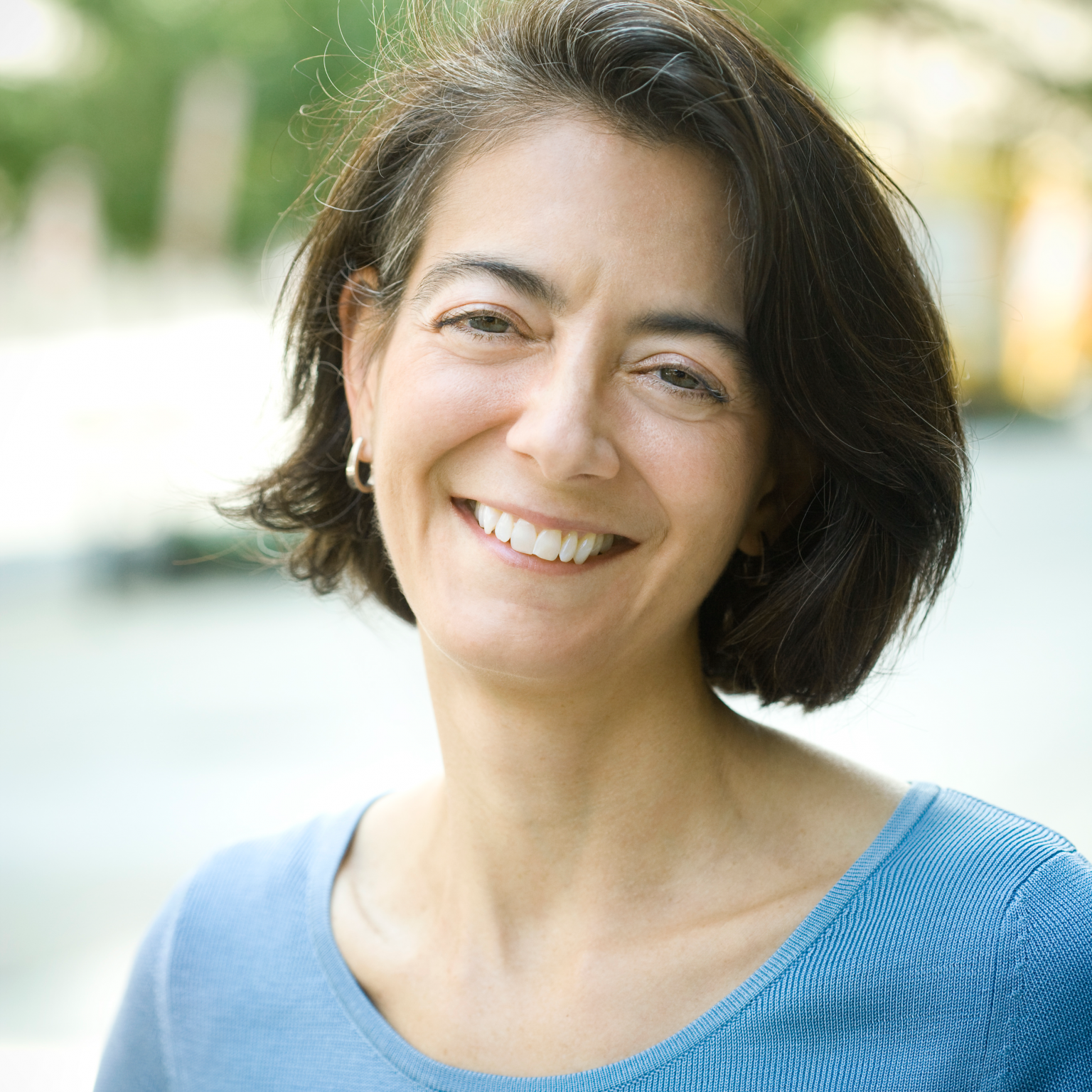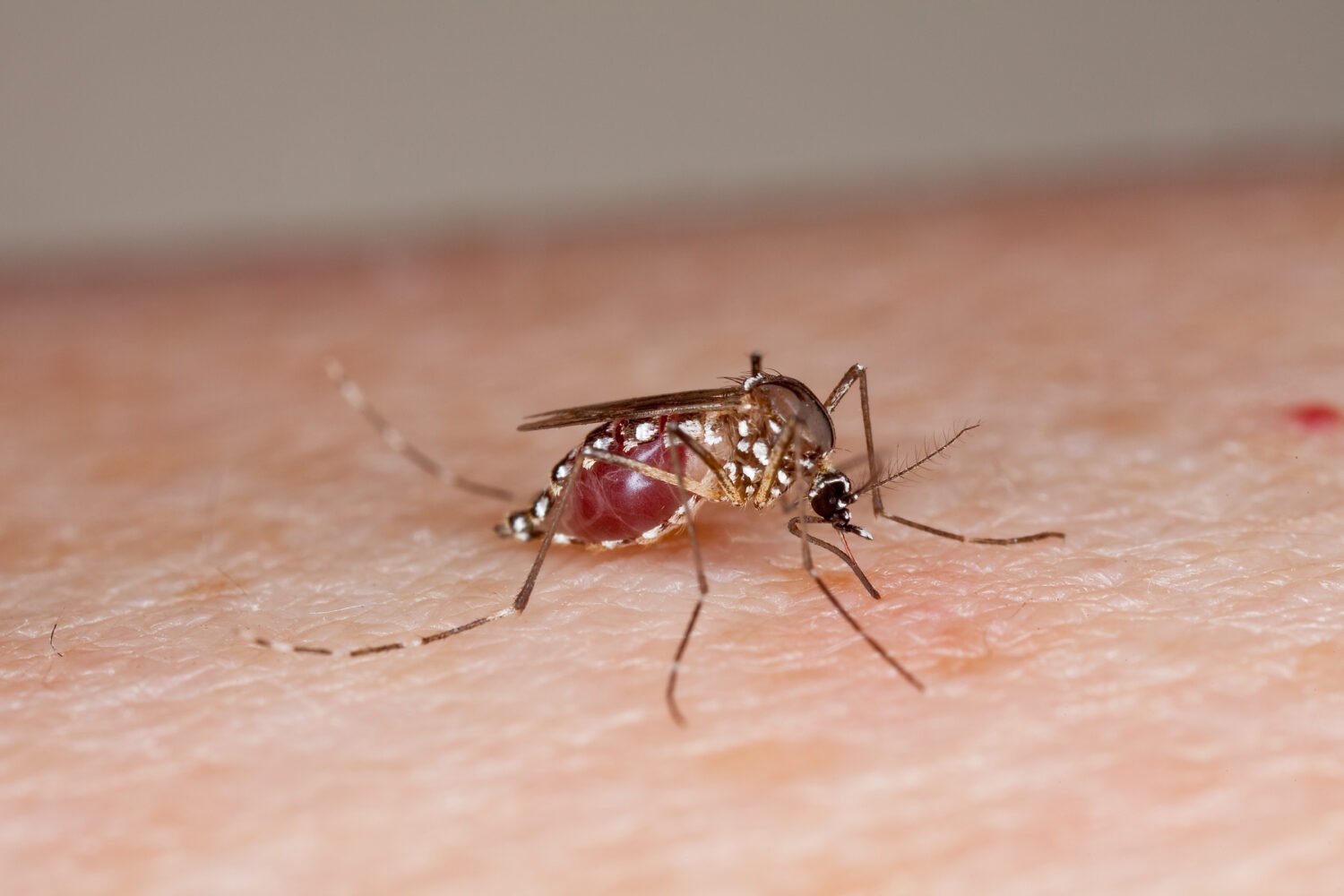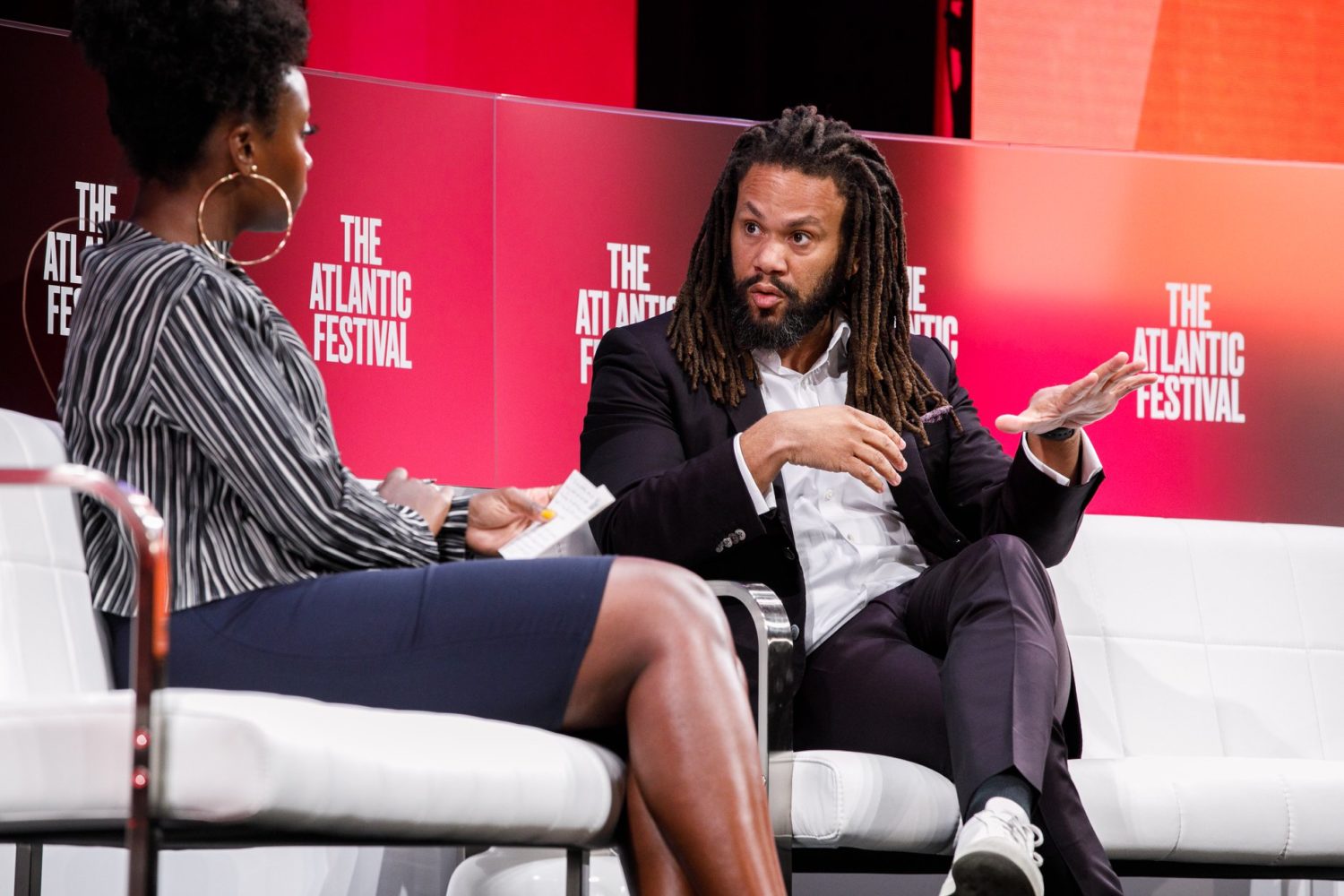In March 2019, about a year to the day before coronavirus shut down life as we know it, a group of DC residents was shuffling through jury duty, that most prosaic of local rituals. As potential jurors were being screened for a gun-possession case, one of them fell ill. Luckily, the citizens on hand included a doctor, who hastened to the woman’s aid.
At the time, some in the jury pool might not have recognized Anthony Fauci, head of the National Institute of Allergy and Infectious Diseases. After the patient was taken away, the bemused judge told the courtroom it was all part of living in the nation’s capital: Get sick on jury duty and a world-famous physician is there to help.
Eighteen months later, it’s safe to assume almost everyone would recognize Fauci, the face of our national coronavirus response—and possibly the most famous doctor on Earth. But while admirers describe him as a national treasure, Washingtonians also know him as our neighbor. He’s lived here some 50 years. He roots for the Nats. He’s one of us.
Fauci was a big deal well before Covid. He first became known for his work on HIV/AIDS and later was a key part of the response to Ebola. He’s a recipient of the Presidential Medal of Freedom, one of the country’s highest civilian honors. In 2014, this magazine named him a Washingtonian of the Year.
In his way, he represents the best of our city, a place that values public service and expertise—and a place that occasionally turns behind-the-scenes wonks into cultural icons. During the pandemic, Fauci has managed to deliver bad news bluntly—the novel coronavirus may kill as many as 400,000 Americans, we won’t have widespread vaccination until next summer or fall—in a way that’s reassuring. Like another child of Brooklyn, Ruth Bader Ginsburg, he has inspired bobbleheads, T-shirts, and memes. One DC bar serves the “Fauci Pouchy,” a Capri Sun–like cocktail sold in a bag, the better to encourage social distancing.
Fauci’s neighbors in upper Northwest DC have given him perhaps the most personal tribute, festooning their lawns and doors and windows with signs proclaiming “Thank You Dr Fauci,” “We Love You Dr. Fauci,” “Honk for Dr. Fauci.” Fauci, 79, who power-walks several nights a week, sees them as he goes by.
“I think it’s very nice and sweet for people to do that. It makes me feel good, but I don’t stop and savor them—I just go on and do my job,” he says. “You know, this is a very difficult time, with this historic pandemic. I have been speaking up and trying to be clear in my recommendations and guidelines about how to avoid infection. And I think the public appreciates that.”
While Fauci says he’s not in it for the celebrity, he’s okay with that if it advances public health.
“[When] I power-walk and I’m in the streets, it’s ridiculous. Even if you have a mask and a hat on, they recognize you purely by your eyes,” he says. “You know, recognizing me as an ego thing is irrelevant. But recognizing me and saying, ‘There’s that guy who keeps saying we should be wearing a mask and keeping our distance and taking care of ourselves,’ then that recognition serves a positive effect.”
The recognition—and the divided nature of our society—has come home in negative ways, too: Fauci and his family have been the target of death threats, and he now travels with security. Still, he’s not in a bunker. He made time to pose for this month’s cover, showing up early for a 7:30 a.m. photo shoot.
You won’t find Fauci on the Top Doctors list in the November issue, however—only because we list physicians who actually see regular patients. Besides, he says, the other hands Washingtonians are in are very good ones.
He points to all the academic research and clinical trials being conducted in this region—from NIH to universities and hospitals—and says that that high quality trickles down to more everyday medical care.
“It’s pretty much public knowledge that during the intensity of this Covid [crisis], because everyone heard my raspy voice, I developed a vocal-cord polyp,” he says. “I didn’t need to go anywhere but Washington, DC, to get the best medical care and surgical care for that. Which I did get at GW. People would have thought, ‘Oh, where are you going to go? Are you going to go to the best place in the world?’ And I just went about seven minutes from my house.”
Some of the best care he’s receiving, though, is closer to home.
“My wife,” Fauci says, “is an amazing rock of support. She’s a very accomplished professional woman. She’s the chairperson of the Department of Bioethics at the NIH. She’s very wise in her advice about getting me to take care of myself. I have a tendency to run myself into the ground. I work 17, 18 hours a day. I would probably work 20 hours a day if it weren’t for her.”


















